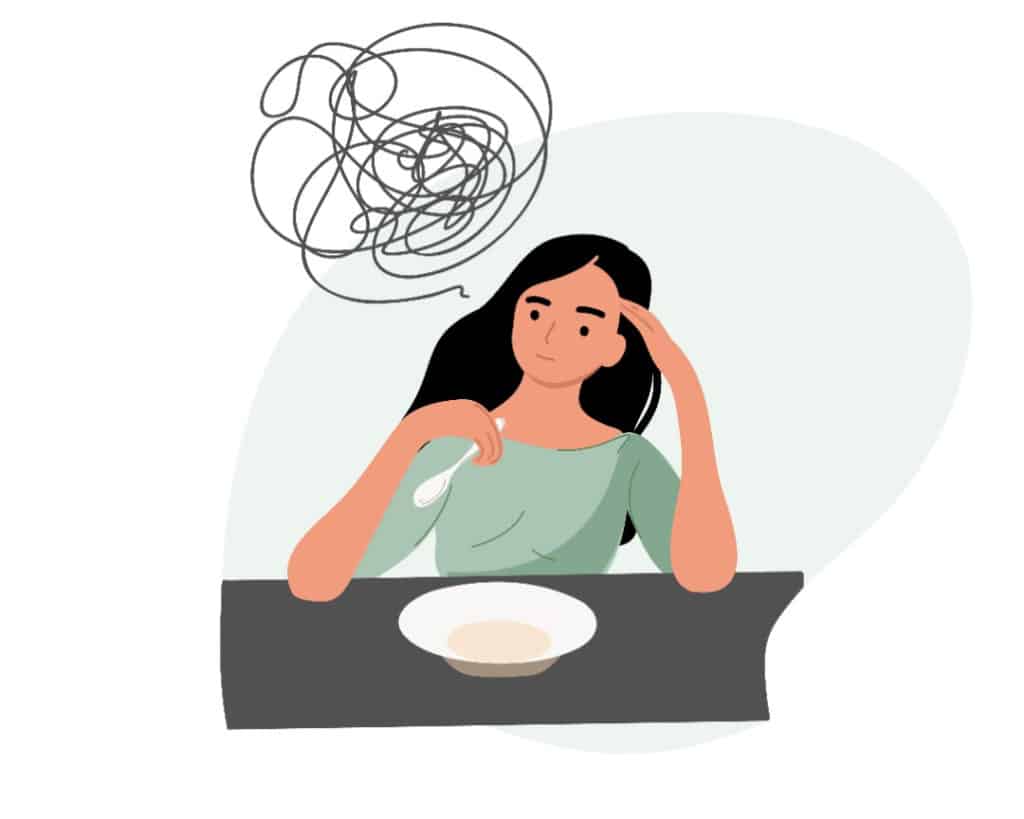Eating disorders are serious health conditions that affect how you think about food, eating, weight, and body shape. These symptoms can impact your health, emotions, and your ability to function in important areas of life.
Types of Eating Disorders
The most common types of eating disorders include:
- Anorexia Nervosa: Characterized by unhealthy weight loss, an intense fear of gaining weight, and an unrealistic perception of weight and body shape.
- Bulimia Nervosa: Characterized by episodes of binge eating followed usually by episodes of purging (e.g., vomiting).
- Binge Eating Disorder: Involves eating large amounts of food within a short period without subsequent purging.
- Avoidant/Restrictive Food Intake Disorder: Characterized by eating very limited amounts of food or avoiding certain foods altogether.
Symptoms of Eating Disorders
Symptoms vary depending on the type of disorder but commonly include:
- Body Image Issues: Excessive focus on weight and shape, and unrealistic body image.
- Eating Problems: Restricting food intake, binge eating, vomiting, or using laxatives or diuretics.
- Emotional Issues: Anxiety, depression, and problems with social relationships.
- Health Problems: Malnutrition, heart problems, digestive issues, and bone problems.
Causes
The exact cause of eating disorders is unknown, but several factors are believed to contribute, including:
- Genetic Factors: Some evidence suggests genetics may play a role in developing eating disorders.
- Environmental Factors: Environmental influences such as exposure to media promoting thinness, or social or family pressures, may contribute.
- Psychological Factors: Psychological issues like anxiety and depression can contribute to the development of eating disorders.
Treatment
Treatment depends on the type and severity of the disorder and may include:
- Psychotherapy: Helps individuals change thoughts and behaviors related to food and weight.
- Medication: Can help manage symptoms associated with eating disorders, such as anxiety and depression.
- Nutritional Therapy: Helps individuals restore healthy weight and learn healthy eating habits.
Recovery
Recovery from eating disorders is possible but may take time and effort. It is important to receive appropriate treatment from qualified professionals.
What to Do if You Think You Have an Eating Disorder
If you think you have an eating disorder, it is important to seek medical help. A doctor or mental health professional can help diagnose the type of disorder and develop a suitable treatment plan.
Here are some tips that might help if you think you have an eating disorder:
- Talk to someone you trust, like a parent, friend, teacher, or social worker.
- Learn about eating disorders.
- Contact a support organization for eating disorders.
- Remember, you are not alone and there are people who can help you recover




